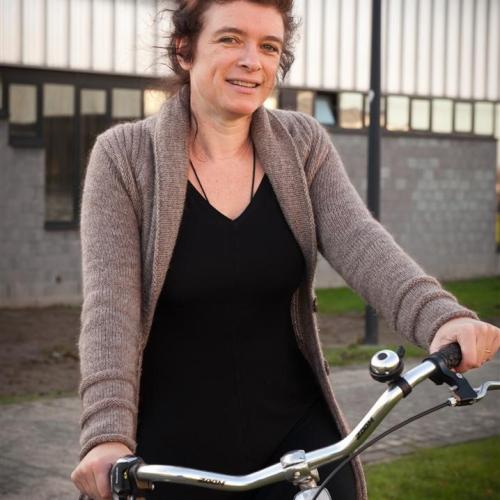Prof. dr. Van Soom Ann , Dipl. ECAR

Ann Van Soom graduated in 1988 as DVM at the faculty of Veterinary Medicine, Ghent University, Belgium, and obtained a PhD on the development of bovine embryos in 1996. She has been employed at Ghent university since 1990.
At present, she holds a position as full professor at the department of Reproduction, Obstetrics and Herd Health, Faculty of Veterinary Medicine, Ghent University, and is also Head of Department. She has been teaching assisted reproduction in domestic species, small animal reproduction and obstetrics to the veterinary students for almost 20 years now.
She is a diplomat of the European College of Animal Reproduction (ECAR) since 1999, and has been a member of the EVSSAR and the IETS for many years. She has been elected as a governor for IETS in 2007 and in 2013. She was member and Chair of the HASAC (Health and Safety Advisory Committee) Research subcommittee of IETS for about ten years. She was chair of the COST Action Epiconcept FA1201 from 2012-2016, and is a member of the EU-ITN network RepBiotech. She is also serving in national and international advisory commmittees on sanitary risks involved with assisted reproduction in domestic species, and has been authoring a chapter in the 4th edition of the IETS Manual dealing with these problems.
She is supervising a group of about 10 PhD students and three postdocs working together on embryonic development and semen quality in different model species, like horses, cattle, cats, dogs and pigs. The main goals of the research performed at the Reproductive Biology Unit is to determine the causes of epigenetic changes and inferior quality of in vitro produced embryos by focusing on the suboptimal culture conditions in vitro and, on the other hand, the embryo-maternal interaction in vivo. We aim to define key molecules and messengers, like extracellular vesicles, involved in oocyte maturation and in the embryo-maternal dialogue as well as in the communication between oocytes/embryos during group culture in vitro. Molecular biology, including whole genome sequencing, and protein analysis has been used as a tool to evaluate gene expression, chromosomal instability and secretions of embryos, and to investigate interactions with the maternal tract and during in vitro culture, and to gain insight in underlying mechanisms and pathways. Prof. Van Soom has published about 250 papers with an H-index 39.
Her clinical activities are related to small animal reproduction, with an emphasis on semen collection, gamete cryopreservation and artificial insemination in cats and dogs. She is also visiting catteries and dog breeding facilities which are experiencing breeding problems. She is offering advice for applying new methods of contraception and oestrus induction in dogs and cats to practicing veterinarians, as well as giving advice in small animal obstetrics. Finally, since 10 years, she has been breeding English springer spaniels and earlier also Somali cats as a hobby.
